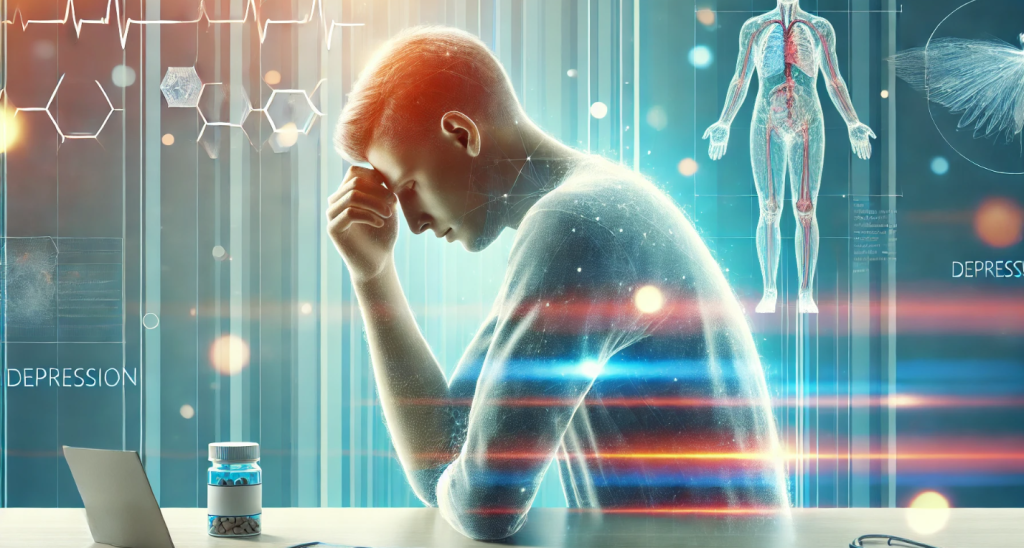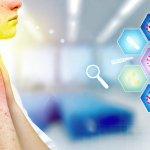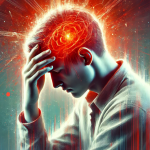Depression is a serious mental condition characterized by feelings of hopelessness, loss of interest in life, low energy, and other symptoms that can significantly impact quality of life. It’s important to understand that depression is not just a bad mood but a condition that requires attention and treatment. Here, we’ll look at how to cope with depression using scientifically proven methods.
1. Seek Help from a Specialist
Psychotherapy is one of the most effective treatments for depression. Consulting a psychotherapist or psychologist is an important step toward recovery. The most effective methods include cognitive-behavioral therapy (CBT) and interpersonal therapy (IPT). A specialist can help identify negative thoughts and behavior patterns that intensify depression and offer strategies to change them.
2. Consider Medication
Antidepressants may be necessary for moderate to severe depression. These medications help restore the balance of neurotransmitters in the brain, such as serotonin and norepinephrine, which play a key role in mood regulation. Antidepressants should only be prescribed by a psychiatrist, as they may have side effects and interact with other medications.
3. Stay Physically Active
Regular physical activity can significantly improve depression symptoms. Exercise stimulates the production of endorphins and other mood-enhancing chemicals. Aim for at least 30 minutes of activity daily, including activities like walking, running, or yoga. Exercise also helps reduce stress and improve sleep quality.
4. Maintain Social Connections
Social support plays a crucial role in overcoming depression. Regular interaction with friends, family, or support group members can help reduce feelings of loneliness and isolation that often accompany depression. Sometimes, simply spending time with loved ones can bring considerable relief.
5. Follow a Balanced Diet and Maintain Sleep Hygiene
Balanced nutrition and healthy sleep are essential in combating depression. Lack of certain nutrients, such as omega-3 fatty acids, vitamin D, and magnesium, can worsen depression symptoms. Regular sleep is also important for physical and mental recovery. Try to go to bed and wake up at the same time each day and avoid gadgets before bed.
When to Seek Help

If depression symptoms persist for more than two weeks and significantly impact your quality of life, it’s time to see a specialist. Depression is treatable, and early intervention can lead to quicker improvement and prevent complications.Depression: Understanding, Symptoms, and Effective Treatment
Depression, also known as major depressive disorder, is a prevalent mental health condition affecting millions of people worldwide. It is more than just feeling sad or having a bad day; depression is a serious medical condition that impacts how individuals think, feel, and act. It can interfere with daily activities, relationships, and overall quality of life. By understanding the causes, recognizing the symptoms, and seeking proper treatment, individuals can manage depression effectively and improve their well-being.
What Causes Depression?
Depression results from a combination of genetic, biological, environmental, and psychological factors. It often runs in families, suggesting a genetic predisposition. Brain chemistry also plays a crucial role; imbalances in neurotransmitters like serotonin, dopamine, and norepinephrine can contribute to depressive symptoms. Stressful life events, such as the loss of a loved one, financial difficulties, or a traumatic experience, can trigger depression in susceptible individuals. Additionally, chronic illnesses, hormonal changes, and certain medications can increase the risk. Social isolation, lack of support, and unhealthy coping mechanisms are also significant contributors.
Common Symptoms of Depression
The symptoms of depression vary from person to person, but they generally fall into emotional, cognitive, and physical categories. Emotional symptoms include persistent sadness, feelings of hopelessness, guilt, or worthlessness. Cognitive symptoms may involve difficulty concentrating, making decisions, or remembering details. Physical symptoms often manifest as fatigue, changes in appetite or weight, sleep disturbances (insomnia or oversleeping), and unexplained aches or pains. In severe cases, individuals may experience thoughts of death or suicide, which require immediate medical attention.
How Is Depression Diagnosed?
Diagnosing depression involves a comprehensive evaluation by a mental health professional. The process typically includes discussing symptoms, medical history, and family background. Clinicians use standardized tools like the DSM-5 criteria to confirm the diagnosis. Laboratory tests may be conducted to rule out underlying medical conditions such as thyroid disorders or vitamin deficiencies that could mimic depressive symptoms.
Effective Treatments for Depression
Depression is treatable, and various options are available to help individuals regain control of their lives. Common treatments include:
- Psychotherapy: Cognitive-behavioral therapy (CBT) is one of the most effective approaches, helping individuals identify and change negative thought patterns. Other forms, like interpersonal therapy and psychodynamic therapy, may also be beneficial.
- Medication: Antidepressants, such as selective serotonin reuptake inhibitors (SSRIs) like fluoxetine and sertraline, are widely used to regulate brain chemistry. It may take a few weeks for these medications to show full effects, and they should always be taken under medical supervision.
- Lifestyle Changes: Regular exercise, a balanced diet, and adequate sleep significantly impact mental health. Physical activity, in particular, boosts endorphin levels, improving mood and reducing stress.
- Mindfulness and Relaxation Techniques: Practices such as meditation, yoga, and deep-breathing exercises can help individuals manage stress and improve emotional resilience.
- Support Groups: Sharing experiences with others who understand the challenges of depression can provide emotional relief and practical coping strategies.
- Alternative Therapies: Emerging treatments like transcranial magnetic stimulation (TMS) and ketamine therapy are showing promise for individuals with treatment-resistant depression.
SEO-Optimized Advice on Managing Depression at Home
For those searching for “ways to manage depression at home” or “natural remedies for depression,” incorporating daily self-care practices is essential. Journaling thoughts, setting realistic goals, and maintaining a routine can help establish stability. Additionally, reducing screen time and engaging in meaningful activities, such as volunteering or pursuing hobbies, can enhance mental well-being.
Preventing Depression
Preventing depression involves proactively addressing risk factors. Building a strong support network, practicing stress management, and seeking professional help during challenging times can reduce the likelihood of depression. Early intervention is key, as it prevents the condition from worsening and enables individuals to recover more quickly.
Why Seeking Help for Depression Is Important
Left untreated, depression can have severe consequences, including impaired physical health, strained relationships, and reduced productivity. However, with proper treatment and support, most individuals can recover and lead fulfilling lives. Mental health awareness is growing, and seeking help is a sign of strength, not weakness.
Conclusion
Depression is a complex but treatable condition that affects millions of people. Understanding its causes, recognizing the symptoms, and exploring effective treatment options can empower individuals to overcome the challenges it presents. Whether you’re looking for professional help, natural remedies, or self-care strategies, taking the first step towards addressing depression is the key to a brighter, healthier future. By raising awareness and prioritizing mental health, society can combat the stigma associated with depression and provide support to those in need.
















